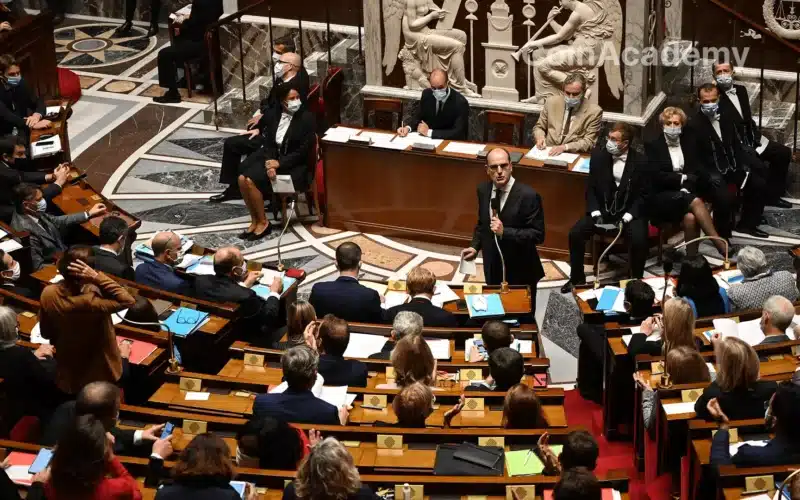L’Assemblée nationale confirms increase in the Flat Tax rate to 37.2% for incomes over €250,000 for single individuals and €500,000 for couples, adopting Article 3 of the 2025 finance bill which establishes the Differential Contribution on High Incomes (CDHR).
The first reading of the 2025 finance bill in the National Assembly was marked by a landmark decision: the retention of the Flat Tax at 37.2% for high incomes. This measure, which has sparked debates and controversies, reflects a desire to increase the tax burden on high-income taxpayers in the context of budget reform and adjustment of public finances.
L’Asemblée Nationale confirms the increase in the Flat Tax
The National Assembly has confirmed, in the first reading, a significant increase in the Flat Tax applied to incomes exceeding €250,000 for single individuals and €500,000 for couples. This decision is part of the adoption of Article 3 of the finance bill, which establishes the Differential Contribution on High Incomes (CDHR). Initially envisioned as a temporary measure, this contribution has been made permanent through several amendments discussed in the hemicycle.
The combined tax rate, which includes the 20% Flat Tax and 17.2% social contributions, will thus reach 37.2% for this category of taxpayers. This measure has been adopted despite political tensions and attempts to adjust by certain deputies, both on the left and right.
Debates around the CDHR: rejected proposals
The discussions around Article 3 of the finance bill have resulted in a series of amendments and proposals aimed at modifying the tax thresholds or exempting certain types of income. Among these proposals:
- Exclusion of patent income: The government attempted to introduce an amendment to exclude patent income, which benefits from a preferential rate of 10%. This proposal was rejected by the Assembly.
- Revision of tax thresholds: Deputy Laurent Croizier proposed lowering the tax thresholds to €125,000 for single individuals and €250,000 for couples. This initiative, aimed at expanding the scope of the CDHR, was also rejected.
Despite these attempts at modification, the CDHR was adopted in its original form, with majority support from deputies. The proposal from the left, led by Marianne Maximi (LFI), to make this contribution permanent to fund public services has nonetheless found some resonance.
🚨 The amendment aimed at taxing French nationals residing abroad has been rejected.
It was deemed unenforceable. pic.twitter.com/X29SGTO41o
Strong opposition on the right
On the right, the fiscal instability caused by this measure has been strongly criticized. Véronique Louwagie, representative of the Republican Right, expressed concerns about the negative effects of the perpetuation of this tax on economic stability and threatened to vote against the article if this direction was maintained. According to her, this increase in the tax burden could discourage investments and undermine the confidence of high-income taxpayers.
A legislative journey far from over for the new Flat Tax
With 191 votes in favor and 35 against, the adoption of Article 3 is only the first step in the legislative process of the 2025 finance bill. Discussions are set to resume on October 23, and the measure could still be modified through debates and upcoming amendments. Some parliamentarians still hope to lighten this increase, while others consider strengthening it to further redistribute wealth.
In its current state, the 37.2% contribution could apply from 2025 to the relevant incomes, but uncertainties related to parliamentary negotiations suggest that this measure could still evolve before the final adoption of the finance bill.
Towards a deep tax overhaul?
The retention of the Flat Tax at such a high rate for high incomes is part of a broader trend of fiscal reforms aimed at rebalancing public finances. By increasing the contribution of the wealthiest taxpayers, the objective is to strengthen the financing of public services and bridge part of the budget deficits.
However, the measure continues to divide public opinion and economic experts. Some view this increase as a necessary response to growing inequalities, while others fear that it may harm the country’s fiscal attractiveness and encourage wealthy taxpayers to seek tax evasion solutions. The debate on the taxation of high incomes is far from over and could have further developments before the end of the legislative process.




